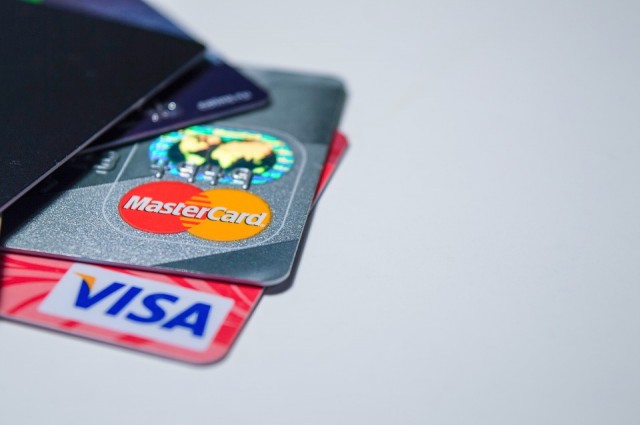It’s obviously risky for banks (large and small) to loan money to new businesses. So, if you’re in the market for a business credit card, the issuer will generally always require a personal guarantee and not just a promise that the business will repay.
What are the chances that you can get a business card without a personal guarantee?
“It’s very, very rare,” says Levi King, founder and CEO of Creditera, a company that helps small business establish, understand and leverage their credit.
Read on for why business card issuers want that personal guarantee, some (very rare) circumstances in which you might get a card without one and, more importantly, how your business can leverage credit without a business credit card.
What is a personal guarantee?
A personal guarantee means you’re responsible for the balance on your business credit card if your business is unable to pay.
“If you shut down your business, or the business just doesn’t have enough money, or whatever the case is, if the business can’t make the payments, you have to make them,” King says.
When applying for a business card that requires a personal guarantee (ie, most of them), expect wording similar to this (from the application for the Chase Ink business cards):
Why do issuers want personal guarantees?
Although you might not want to think about your business failing, many do fail. The bank can’t afford to be on the hook for every failed venture. Plus, as King points out, many “failed” business owners do have the means to pay.
“There are so many people who start businesses and the business fails, but they’re entirely employable,” he says. “Their business fails and they go back to a corporate job. So a lot of people have resources personally [to pay off a business’s debts].”
Plus, banks know that businesses often go through rough patches – and they don’t want any late payments as your business experiences those growing pains.
“The person who started the business may have substantial retirement funds or equity in their home or friends and family to borrow from,” King says. “The issuer wants to tap those additional resources if the business can’t pay its bills.”
What personal guarantees mean for your credit
In addition to putting your personal finances on the line for your business, you’re putting your personal credit on the line, too. As long as things are going smoothly, many business cards don’t report to the consumer credit bureaus and won’t show up on your personal credit reports, King says. But if your business becomes severely delinquent, expect that business card to show up and weigh down your credit scores.
Also, because you’re personally guaranteeing the card, your personal credit will get pulled when you apply. In fact, if your business is new, it might be the only thing the bank has to go on, because startups generally haven’t had time to establish business credit yet (which is commonly done by establishing a record with Dun & Bradstreet).
Without a business-credit track record, the bank isn’t going to spend time and resources delving into your business plan – it’s going to go for your personal credit score.
“The challenge is that underwriting is expensive,” King says. “So it’s tough for them to dive deep into anything related to the business other than business credit. That requires human capital. So they have to use something that’s already reliable.”
The bright side is that excellent personal credit can help you get a business card with favorable rewards and terms. For brand-new startups, personal credit is probably 90 percent of what banks look at, King says. As your business becomes more established and your business credit rating climbs, personal credit will start to weigh less heavily, but an excellent personal credit score can still give you an edge.
Is it possible to get a business credit card without a personal guarantee?
It’s possible. But only in very special circumstances, King says, including:
- You have a long, close relationship with a bank, a long-established business and heavy profits. If you’ve already gotten large loans from that bank, “they’ve probably drilled deep enough into your financials to know you’re solid as a rock,” King says. You’ll still have to negotiate to be released from the personal guarantee, though, and the bank still might refuse, King says.
When it comes to negotiating out of a personal guarantee, you’ll probably have more luck with a small regional bank than a large one, King says. With a large bank, the person (or committee) who makes decisions regarding your account probably doesn’t even know you.
“A small bank actually knows you,” King says. “You may have a business loan officer who submits a package directly to the committee that makes the approvals.”
- Your startup has a lot of venture capitalist funding (we’re talking millions of dollars) – and that funding is stored in the bank you want the credit card from. The bank has your money and may be less worried about personally guaranteeing a card with, say, a $50,000 credit line.
Another way – business lines of credit
A lot of the confusion surrounding personal guarantees on business cards stems from the fact that you can get other forms of business credit without personal guarantees – assuming you have good business credit. Companies that sell goods and services to businesses (Home Depot, Staples, Pitney Bowes, for example) extend lines of credit to businesses. And those can sometimes take the form of a credit card that can be used only with that company. The credit card is different from one you’d get at your bank, since it can’t be used everywhere. Therefore, a personal guarantee is often not necessary for these store-only lines of credit, if your business credit rating is good enough.
Company-specific lines of credit are more lenient about personal guarantees because you’ll be limited to buying things specifically for the business.
“But if you’re a bank and you’re giving someone a business credit card, that person could use it for anything,” King says. “They could go gambling in Vegas with that money.”
A savvy small business might leverage these types of credit lines to minimize the amount of credit they have to personally guarantee, King says. For example, say you’re a contractor with excellent business credit in need of credit for building supplies. You might consider getting a larger line of credit at Home Depot (where you’ll be buying the majority of your supplies) and the remaining smaller amount via a business credit card from a bank. You’re still getting the credit you need, but you’re personally guaranteeing only a small part of it
In conclusion
Technically, it’s possible to get a business credit card from a bank with no personal guarantee.
“But if you understand how difficult it is, you’re way better off focusing on running a good, profitable business,” King says. “Rather than trying to get a card with a $10,000 limit [and no personal guarantee], focus on driving $1 million in revenues to your business.”
Find a Home-Based Business to Start-Up >>> Hundreds of Business Listings.

















































